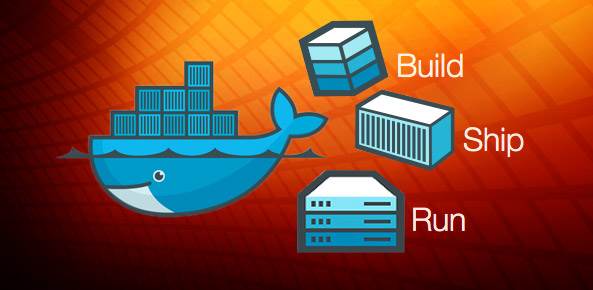![]()
Docker 1.0 is out. It’s the first release version of the open-source container project, which allows multiple applications to run on one server without virtual machines.
Traditional virtual machines virtualize everything, from processor to storage, while the Docker container shares OS kernels and doesn’t have to deal with handling hardware virtualization. Version 1.0 of Docker has been in development for 15 months.
On its Web site, Docker Inc. describes Docker as “an open platform for developers and sysadmins to build, ship, and run distributed applications.” The company said that the Docker container allows applications “to be quickly assembled from components and eliminates the friction between environments,” so that the same application can be deployed without changes on devices, on virtual machines in the data center or in the cloud. Like Red Hat with Linux, Docker Inc. is a commercial servicing arm of the open-source technology.
Docker Engine, Hub
The Docker Engine is the de facto container standard, and the cloud-based Docker Hub is a service for users, content and workflows, with container image distribution, change management and team collaboration.
Version 1.0 is designed to run on all major Linux distributions, including Red Hat, Debian, Ubuntu, Fedora, Gentoo, Sues and Arch. There are also plug-in interfaces for execution and file system drivers, and, with boot2docker, there’s support for Mac OS X and Windows.
In announcing 1.0, Docker the company thanked the more than 460 project contributors. The Enterprise Support program offers training, expertise and support for workloads using the Docker platform, available in different levels of support, including Priority 1 support on a 24x7x365 basis. Initial integrator partners include Arcus, Dev9, Flux7, InfoSiftr, MomentumSI, OpDemand, Relevance Labs, Shadow-Soft, Vizuri and Wiredcraft.
The Docker Platform
The Docker software has already been downloaded nearly 3 million times, and there are more than 14,000 applications with Docker capability. More than 90 community-based user groups have been established in over 30 countries, and there are 6,500-plus Docker-related projects on GitHub.
Brian McCallister, Groupon chief technology officer of Platform, said in a statement that Groupon has “started using Docker as the foundation for our build-and-release pipelines, because it offers huge benefits around standardization and repeatable processes, especially for a company like Groupon with such a diverse set of technologies in play.”
He added that platform reliability is “critical, and Docker provides the best, most easily managed tool for packaging and deploying services.”
The first version of Docker was released in March 2013. In a posting Monday on the Docker blog, the company said that the release of version 1.0 “signifies a level of quality, feature completeness, backward compatibility and API stability to meet enterprise IT standards.”
The company also said that, from now on, it will talk about Docker as a platform whose components are the “Docker Engine, the container runtime and packaging tool, and Docker Hub, a cloud-based service for collaboration, content, and workflow automation.”
NewsFactor Network







